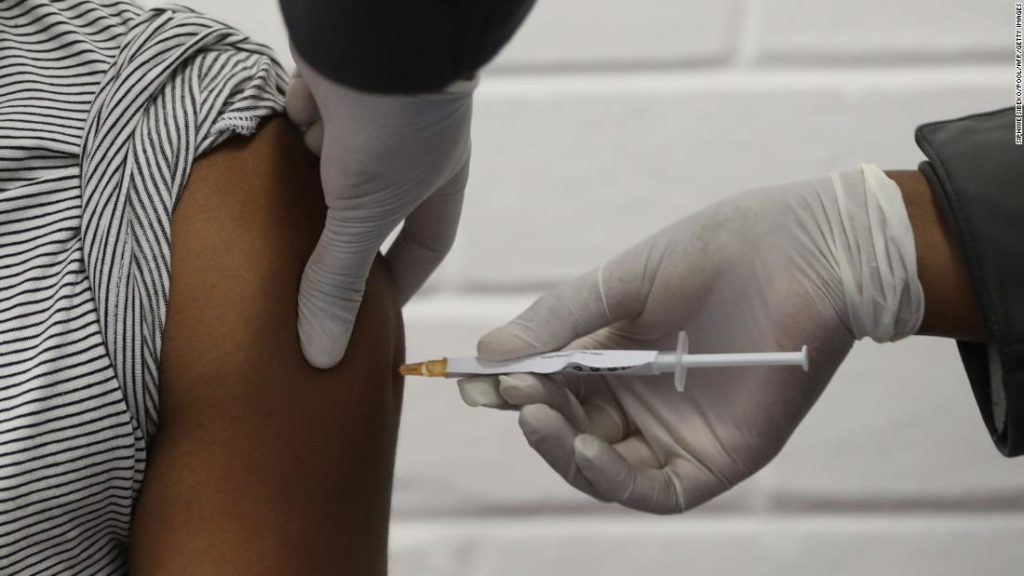In comparison to other regions, Africa was slow to start and is likely to be slow in catching up, health officials said.
Emerging markets like South Africa have also found themselves paying more than their wealthier counterparts.
Paying double
“There is a global demand for the vaccine in the first quarter. We are not aware of a cheaper option that is immediately available,” the health ministry’s head of communications, Popo Maja, said.
The SII did not immediately respond to requests for comment.
But few cheap vaccine options are available to African countries because of continued global demand, leaving the continent trailing behind, say government officials and health organizations such as the World Health Organization (WHO).
Making their own deals
Most African countries suffered fewer deaths from the first wave of the virus last year compared to other parts of the world, but case numbers are now surging across the continent, particularly in the southern region.
“If we don’t manage the situation we will end up with a moral catastrophe in our hands,” the head of Africa’s Centres for Disease Control and Prevention, John Nkengasong, told CNN last week. “If we have those vaccines and we continue to apply aggressively the public health measures, the issue of variants would disappear.”
Last year, WHO set up the Access to Covid-19 Tools (ACT) Accelerator, a partnership to coordinate production and boost access to treatments, vaccines and tests.
COVAX, the ACT Accelerator’s vaccines branch, aims to distribute 2 billion Covid-19 doses globally by the end of this year, with 690 million forecast for Africa’s lower-income countries.
The initiative is led by WHO; the Coalition for Epidemic Preparedness Innovations; and Gavi, the Vaccine Alliance. It will be funded by development agencies and donations from groups such as the Bill & Melinda Gates Foundation.
If Gavi’s supply forecast is correct, the countries will only have enough to fully vaccinate 27% of their combined population, James Fulker, a spokesperson for Gavi, told CNN.
WHO is asking richer countries to prioritize fair supply instead of making their own extensive deals with pharmaceutical companies or else share their unused doses with COVAX.
At the same time, the health agency is encouraging poorer countries to secure additional coverage through their own deals.
The AU has also taken the lead in seeking out deals for its member countries, by setting up the African Vaccine Acquisition Task Team (AVATT).
Last week, AVATT procured 400 million doses from the SII, adding to the 270 million secured in January, Nkengasong said.
Anger against vaccine nationalism
The global disparity in access to Covid-19 vaccines has caused widespread anger among Africa’s leaders, including South Africa’s president and chair of the AU, Cyril Ramaphosa, who warned during a World Economic Forum virtual meeting last week that richer countries are “hoarding” vaccines, and urged global action to ensure an equitable rollout.
“We are concerned about vaccine nationalism,” Ramaphosa said. “The rich countries of the world went out and acquired large doses of vaccines from the developers and manufacturers of these vaccines and some countries have even gone beyond and acquired up to four times what their population needs.”
This behavior is marginalizing the countries that are “most in need” of the vaccine, Ramaphosa added.
WHO has echoed Ramaphosa’s words on several occasions, stating recently that the vaccine gap between rich and poor countries is widening.
National rollouts
But countries in sub-Saharan Africa are working with what they can to get some coverage underway.
The value of sharing
“It is in their common interest, in the collective interest that people get vaccinated in a timely fashion all over so that we can get out of this pandemic as a collective,” Nkengasong told CNN. “There’s no way only parts of the world like the richer nations will get out of this without the southern hemisphere also getting out of the pandemic.”
In his opening remarks at the 148th session of the WHO executive board on January 18, its director-general, Tedros Adhanom Ghebreyses, said the approach of first world countries was “self-defeating.”
Ghebreyses wants vaccination to be underway in every country within the first 100 days of 2021, but this may be an ambitious target when many countries in Africa have yet to receive vaccines and may not for some weeks.
“Time is short, and the stakes could not be higher; every moment counts,” he said.
CNN’s Brent Swails, Stephanie Busari and Krystina Shveda contributed to this report.
You may also like
-
UK coronavirus variant has been reported in 86 countries, WHO says
-
NASA technology can help save whale sharks says Australian marine biologist and ECOCEAN founder, Brad Norman
-
California Twentynine Palms: Explosives are missing from the nation’s largest Marine Corps base and an investigation is underway
-
Trump unhappy with his impeachment attorney’s performance, sources say
-
Lunar New Year 2021: Ushering in the Year of the Ox

